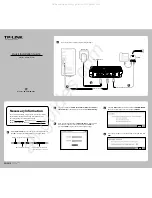
Page
©2005 Quasarbiz Document: VS100UM101
22
SHARE MANAGEMENT
A share is a directory that can be mounted on one or more computers and filled with as many
subdirectories as desired, up to the limit of the space in the disk pool in which the share exists.
A pool is a specified amount of disk space that contains one or more shares (see
“Disk
Management”
for information about creating and managing disk pools). If more than one share is
in the same pool, any space taken up by one share is space that is not available for the other shares
in that pool, and if any one share fills up the space, no files can be written to any of the shares in
that pool until some files are deleted. Shares in other pools however, continue functioning normally
as long as there is available space in the other pools.
Note: A disk pool must be created before a share can be created (see
“Disk Management”
).
The JS100 unit supports the Microsoft file allocation table (FAT) file system. If a disk is claimed
using the FAT system, the entire disk is a considered as a single share. A disk using the FAT system
is called a legacy disk (see
“Legacy Disk Management - Basic”
), and a legacy disk share is called a
foreign share. Otherwise, a share is called a pool share.
Administrators can control how each share is accessed. JS100 units support four protocols for
accessing shares:
Common Internet File System (CIFS)
Network File System (NFS)
Hypertext Transfer Protocol (HTTP)
File Transfer Protocol (FTP)
Windows machines use CIFS protocol; UNIX-based machines typically use NFS, and Web browsers
use HTTP. FTP is an older internet protocol supported by both browsers and command-line-based
clients.
Each of these protocols can be disabled globally. If they are enabled globally, they may be enabled
or disabled independently for each share. Moreover, in workgroup modes (see
“Workgroup Member
Mode”
), administrators can control which individuals can access each share. In PBSA mode, only
individuals who know the share password can access the share. In UBSA mode, read, read/write,
or no access permissions may be granted to each individual user.
















































